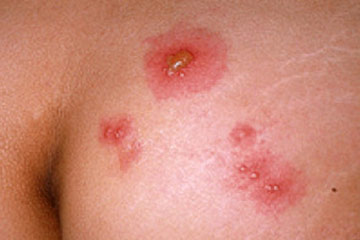2012-2013 Influenza (Flu) Season
What should I do to prepare for flu season?
CDC recommends that everyone 6 months and older get a flu vaccine each year.
Getting a flu vaccine is the first and most important step in protecting against this serious disease.
Are there new recommendations for the 2012-2013 influenza season?
The Advisory Committee on Immunization Practices (ACIP) meets regularly to discuss and update vaccination recommendations. On June 20-21, 2012, the ACIP will meet and vote on recommendations for the 2012-2013 season. Those new recommendations will be published in theMorbidity and Mortality Weekly Report (MMWR) and posted on the CDC Influenza web site. At this time, no substantive changes to existing recommendations are under consideration by ACIP.
Existing recommendations are available at Seasonal Influenza Vaccination Resources for Health Professionals.
Visit the What’s New web page to sign up and receive updates from the CDC Influenza site.
Who should get vaccinated this season?
Everyone who is at least 6 months of age should get a flu vaccine this season. It’s especially important for some people to get vaccinated. Those people include the following:
- People who are at high risk of developing serious complications like pneumonia if they get sick with the flu
- This includes
- People who have certain medical conditions including asthma, diabetes, and chronic lung disease.
- Pregnant women.
- People 65 years and older.
- This includes
- People who live with or care for others who are high risk of developing serious complications
- This includes household contacts and caregivers of people with certain medical conditions including asthma, diabetes, and chronic lung disease.
A detailed list is available at Who Should Get Vaccinated Against Influenza. A complete list of health and age factors that are known to increase a person’s risk of developing serious complications from flu is available at People Who Are at High Risk of Developing Flu-Related Complications.
When should I get vaccinated?
CDC recommends that people get vaccinated against influenza as soon as 2012-2013 flu season vaccine becomes available in their community. Influenza seasons are unpredictable, and can begin as early as October.
It takes about two weeks after vaccination for antibodies to develop in the body and provide protection against the flu.
Flu vaccine is produced by private manufacturers, so availability depends on when production is completed. If everything goes as indicated by manufacturers, shipments are likely to begin in August and continue throughout September and October until all vaccine is distributed.
Doctors and nurses are encouraged to begin vaccinating their patients as soon as flu vaccine is available in their areas, even as early as August.
Where can I get a flu vaccine?
Flu vaccines are offered in many locations, including doctor’s offices, clinics, health departments, pharmacies and college health centers, as well as by many employers, and even in some schools.
Even if you don’t have a regular doctor or nurse, you can get a flu vaccine somewhere else, like a health department, pharmacy, urgent care clinic, and often your school, college health center, or work.
Why do I need a flu vaccine every year?
A flu vaccine is needed every year because flu viruses are constantly changing. It’s not unusual for new flu viruses to appear each year. The flu vaccine is formulated each year to keep up with the flu viruses as they change.
Also, multiple studies conducted over different seasons and across vaccine types and influenza virus subtypes have shown that the body’s immunity to influenza viruses (acquired either through natural infection or vaccination) declines over time.
Getting vaccinated each year provides the best protection against influenza throughout flu season.
Is there treatment if I get sick with the flu?
Yes. If you get sick, there are drugs that can treat flu illness. They are called antiviral drugs and they can make your illness milder and help you feel better faster. They also can prevent serious flu-related complications, like pneumonia. For more information about antiviral drugs, visitTreatment (Antiviral Drugs).
The 2012-2013 Influenza Season
What sort of flu season is expected this year?
Flu seasons are unpredictable in a number of ways. Although epidemics of flu happen every year, the timing, severity, and length of the epidemic depends on many factors, including what influenza viruses are spreading, whether they match the viruses in the vaccine, and how many people get the vaccine.
When will flu activity begin and when will it peak?
The timing of flu is very unpredictable and can vary from season to season. Flu activity most commonly peaks in the U.S. in January or February. However, seasonal flu activity can begin as early as October and continue to occur as late as May. The 2011-2012 season began late and was relatively mild compared with previous seasons (see 2011-2012 Flu Season Draws to a Close for more information). It is not possible to predict how mild or severe the 2012-2013 season will be.
Will new flu viruses circulate this season?
Flu viruses are constantly changing so it's not unusual for new flu viruses to appear each year. For more information about how flu viruses change, visit How the Flu Virus Can Change.
Influenza Vaccine
What kind of vaccines will be available in the United States for 2012-2013?
A number of different manufacturers produce trivalent (three component) influenza vaccines for the U.S. market, including intramuscular (IM), intradermal, and nasal spray vaccines. See Key Facts About Seasonal Flu Vaccine for more information about the different types of vaccine available in the United States. While some manufacturers are planning to produce a quadrivalent (four component) vaccine in the future, quadrivalent vaccines are not expected to be available for the 2012-2013 season.
How much vaccine will be available during 2012-2013?
For the 2012-2013 season, manufacturers have projected that they will produce between 146 million and 149 million doses of flu vaccine.
During 2011-2012, 132.8 million doses of flu vaccine were distributed in the United States.
Who produces influenza vaccine for the United States?
Influenza vaccine for the United States is produced by a number of different vaccine manufacturers and licensed by the Food and Drug Administration. The CDC does not produce flu vaccine.
What flu viruses does the vaccine protect against?
Flu vaccines are designed to protect against three influenza viruses that experts predict will be the most common during the upcoming season. Three kinds of influenza viruses commonly circulate among people today: influenza B viruses, influenza A (H1N1) viruses, and influenza A (H3N2) viruses. Each year, one flu virus of each kind is used to produce seasonal influenza vaccine.
The 2012-2013 influenza vaccine is made from the following three viruses:
- an A/California/7/2009 (H1N1)pdm09-like virus;
- an A/Victoria/361/2011 (H3N2)-like virus;
- a B/Wisconsin/1/2010-like virus (from the B/Yamagata lineage of viruses).
While the H1N1 virus is the same as the 2011-2012 recommendation, the recommended influenza H3N2 and B vaccine viruses are different from those recommended for the Northern Hemisphere for the 2011-2012 influenza vaccine.
How long does a flu vaccine protect me from getting the flu?
Multiple studies conducted over different seasons and across vaccine types and influenza virus subtypes have shown that the body’s immunity to influenza viruses (acquired either through natural infection or vaccination) declines over time. The decline in antibodies is influenced by several factors, including the antigen used in the vaccine, and the person's general health (for example, certain chronic health conditions may have an impact on immunity). When most healthy people with regular immune systems are vaccinated, their bodies produce antibodies and they are protected throughout the flu season, even as antibody levels decline over time. People with weakened immune systems may not generate the same amount of antibodies after vaccination; further, their antibody levels may drop more quickly when compared to healthy people.
For everyone, getting vaccinated each year provides the best protection against influenza throughout flu season. It’s important to get a flu vaccine every year, even if you got vaccinated the season before and the viruses in the vaccine have not changed for the current season.
For additional information about declining immunity after vaccination, please see the studies listed below.
- Ambrose CS, Tingling Y, Walker RE, Connor EM. Duration of protection provided by live attenuated influenza vaccine in children
 . Pediatr Infect Dis J 2008;27:744-748.
. Pediatr Infect Dis J 2008;27:744-748. - Kûnzel W et al. Kinetics of humoral antibody response to trivalent inactivated split influenza vaccine in subjects previously vaccinated or vaccinated for the first time
 [383 KB, 3 pages]>
[383 KB, 3 pages]> . Vaccine 1996; 14: 1108-1110.
. Vaccine 1996; 14: 1108-1110. - Ochiai H, Shibata M, Kamimura K, Niwayama S. Evaluation of the efficacy of split-product trivalent A(H1N1), A(H3N2), and B influenza vaccines: Reactogenicity, immunogenicity, and persistence of antibodies following two doses of vaccines
 . Microbiol Immunol 1986;30(11):1141-1149.
. Microbiol Immunol 1986;30(11):1141-1149. - Song JY et al. Long-term immunogenicity of influenza vaccine among the elderly: Risk factors for poor immune response and persistence
 [647 KB, 7 pages]
[647 KB, 7 pages] . Vaccine 2010; 28: 3929-3935.
. Vaccine 2010; 28: 3929-3935.
I have heard of people who don’t get vaccinated against influenza in September or October because they want it to “last” through the entire influenza season. Should people wait until later in the influenza season to be vaccinated?
CDC recommends that influenza vaccination begin as soon as vaccine becomes available in the community and continue throughout the flu season. It takes about two weeks after vaccination for antibodies to develop in the body and provide protection against influenza, and influenza seasons can begin as early as October. Therefore, CDC recommends that vaccination begin as soon as vaccine becomes available to ensure that as many people as possible are protected before flu season begins.
How effective is the flu vaccine?
Influenza vaccine effectiveness (VE) can vary from year to year and among different age and risk groups. For more information about vaccine effectiveness, visit How Well Does the Seasonal Flu Vaccine Work?
Will this season's vaccine be a good match for circulating viruses?
It's not possible to predict with certainty which flu viruses will predominate during a given season. Flu viruses are constantly changing (called “antigenic drift”) – they can change from one season to the next or they can even change within the course of one flu season. Experts must pick which viruses to include in the vaccine many months in advance in order for vaccine to be produced and delivered on time. (For more information about the vaccine virus selection process visit Selecting the Viruses in the Influenza (Flu) Vaccine.) Because of these factors, there is always the possibility of a less than optimal match between circulating viruses and the viruses in the vaccine.
How do we know if there is a good match between the vaccine viruses and those causing illness?
Over the course of a flu season, CDC studies samples of flu viruses circulating during that season to evaluate how close a match there is between viruses used to make the vaccine and circulating viruses.
In addition, CDC conducts studies each year to determine how well the vaccine protects against illness.
Can the vaccine provide protection even if the vaccine is not a "good" match?
Yes, antibodies made in response to vaccination with one flu virus can sometimes provide protection against different but related viruses. A less than ideal match may result in reduced vaccine effectiveness against the virus that is different from what is in the vaccine, but it can still provide some protection against influenza illness.
In addition, it's important to remember that the flu vaccine contains three virus viruses so that even when there is a less than ideal match or lower effectiveness against one virus, the vaccine may protect against the other viruses.
For these reasons, even during seasons when there is a less than ideal match, CDC continues to recommend flu vaccination. This is particularly important for people at high risk for serious flu complications, and their close contacts.
In what years was there a good match between the vaccine and the circulating viruses?
In recent years the match between the vaccine viruses and those identified during the flu season has usually been good. In 18 of the last 22 U.S. influenza seasons the viruses in the influenza vaccine have been well matched to the predominant circulating viruses. Since 1990, there has only been one season (1997-98) when there was very low cross-reaction between the viruses in the seasonal vaccine and the predominant circulating virus, and three seasons (1992-93, 2003-04, and 2007-08) when there was low cross-reaction.
Has CDC always recommended vaccination each year, regardless of vaccine virus strain changes?
Yes. CDC recommends an annual influenza vaccine as the first and best way to protect against influenza. This recommendation is (and has been) the same even during the uncommon years when the vaccine composition (the viruses the vaccine protects against) remains unchanged from the previous season.
Source
What You Should Know for the 2012-2013 Influenza Season
Centers for Disease Control and Prevention
July, 2012
Related Topics
Influenza (Flu) Vaccine
-
2012-2013 Influenza (Flu) Season
-
2011-2012 Seasonal Influenza (Flu) Vaccine Safety
-
Vaccine Virus Selection 2012-2013 Influenza Season
-
Side Effects to the Seasonal Flu Vaccine
-
Intradermal Influenza (Flu) Vaccination
-
Fluzone High-Dose Seasonal Influenza Vaccine






